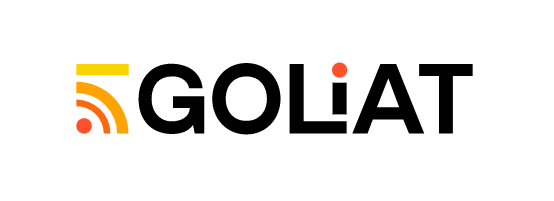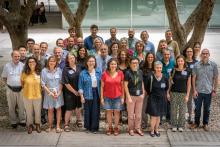GOLIAT - 5G expOsure, causaL effects, and rIsk perception through citizen engAgemenT
Project ID
101057262
Project title
5G expOsure, causaL effects, and rIsk perception through citizen engAgemenT
Project manager, contact details
Krisztián Tóth, toth.krisztian@pte.hu
Academic supervisor, contact details
István Hernádi, Dr., hernadi.istvan@pte.hu
Total project budget
7.999.991 EUR
Total budget of UP
199.937 EUR
Project start date
Project end date
Coordinator
Fundacion Privada Instituto De Salud Global (ES)


Partner Organisations
Universiteit Gent (BR), Institut Mines-Telecom (FR), Consiglio Nazionale Delle Ricerche (IT), Instytut Medycyny Pracy Imienia Prof. Dra Med. Jerzego Nofera Wlodzi (PL), Universita Degli Studi Di Torino (IT), Academisch Medisch Centrum Bil De Universiteit Van Amsterdam (NL), Centre National De La Recherche Scientifique CNRS (FR), Institut National Del Environement Et Des Risques Ineris (FR), Universita Degli Studi Di Roma La Sapienza (IT), Alma Mater Studiorum, Universita Di Bologna (IT), Nemzeti Népegészségügyi Központ (HU),Universitat Wien (AT), Science For Change (ES), Norges MILJO-OG Biovitenskaplige Universitet (NO), Massachusetts General Hospital (US), HARVARD Global Researc And Support Services INC.(United States, Institut Mines-Telecom (FR), University of Pécs (HU)
General description
The overarching aim of GOLIAT is to characterize and monitor RF-EMF exposure, in particular 5G, provide novel insights into potential causal neuropsychological and biological effects, and understand risk perception and communication through citizen engagement using an integrative and transdisciplinary pan-European approach. GOLIAT will ensure that the objectives are measurable, verifiable, achievable, and highly relevant for policy through: focusing on the most vulnerable (i.e. young people) and most exposed (i.e. workers) populations; implementing novel and robust methodologies including next-generation exposure assessment, causal inference, experimental work, health impact assessment, mental models, and ethical values assessment; placing a strong emphasis on translation of knowledge and citizen engagement; and developing a FAIR data infrastructure for use during and beyond the project.
Program
Horizon Europe
Application monitoring
News reference

